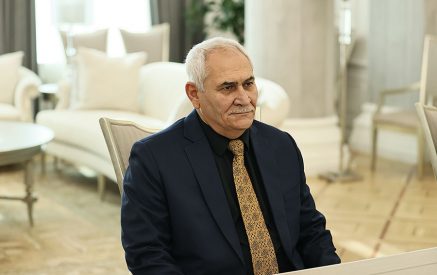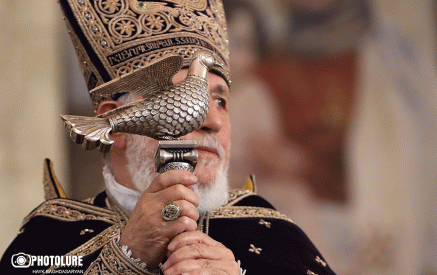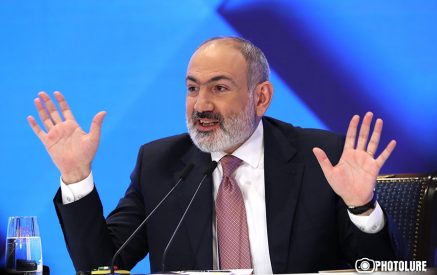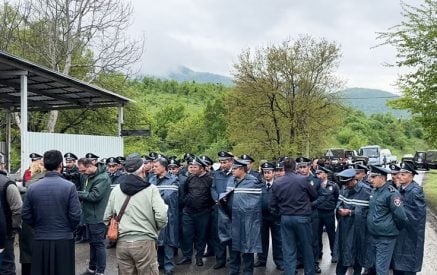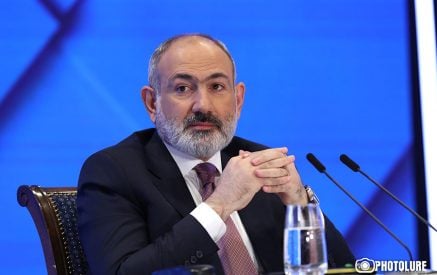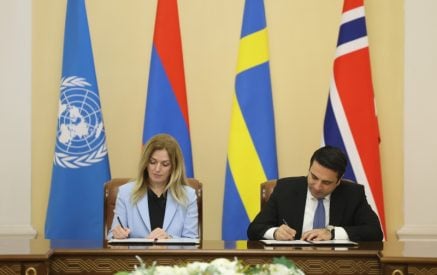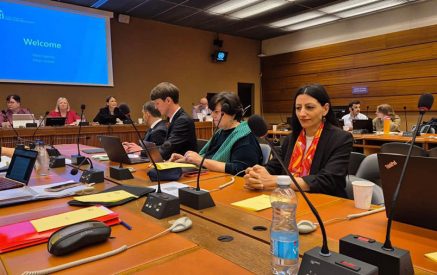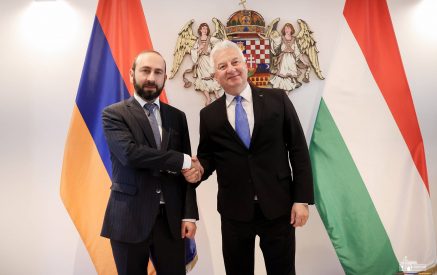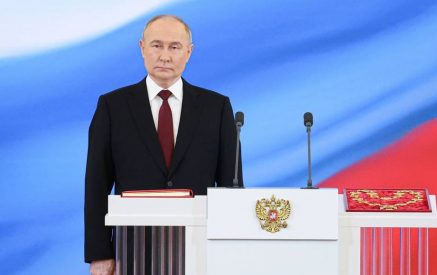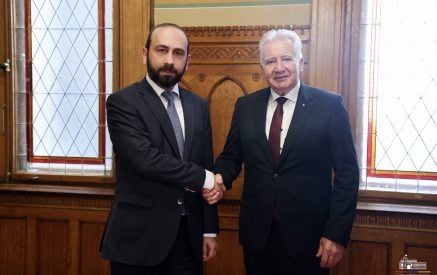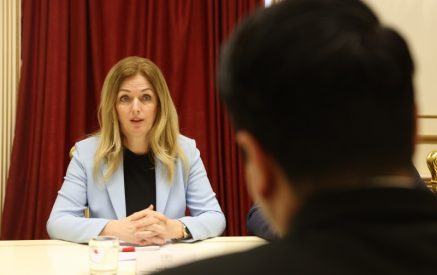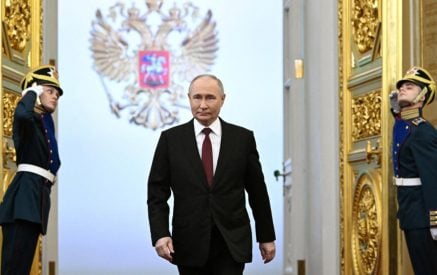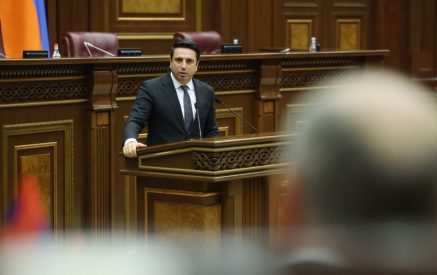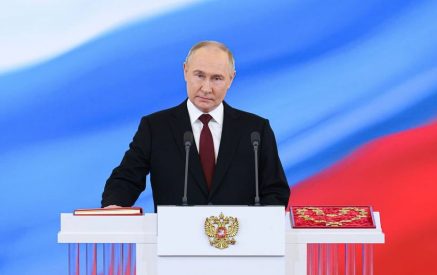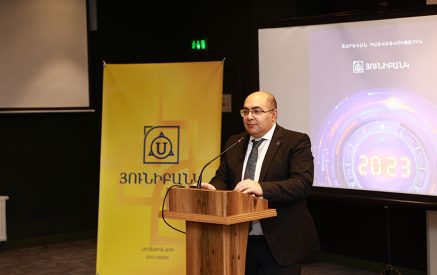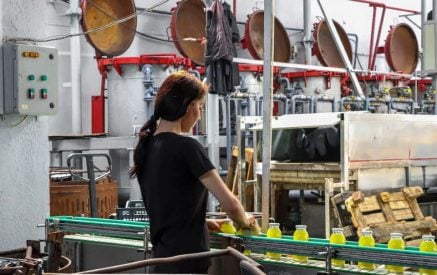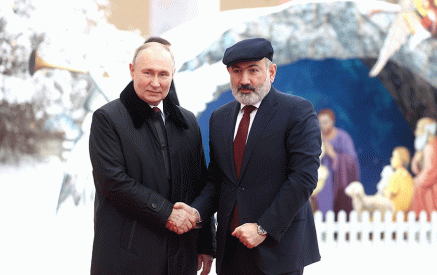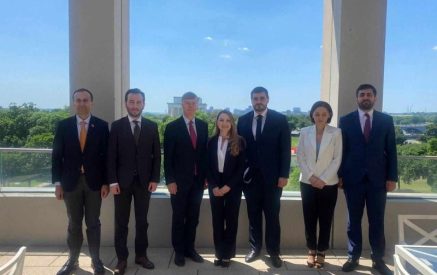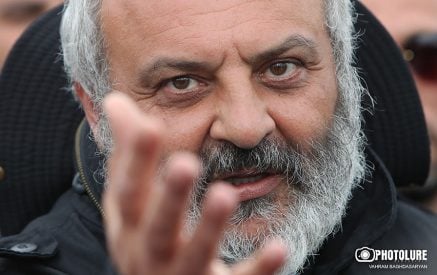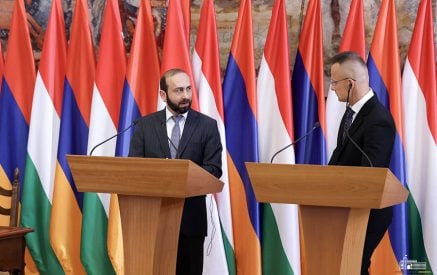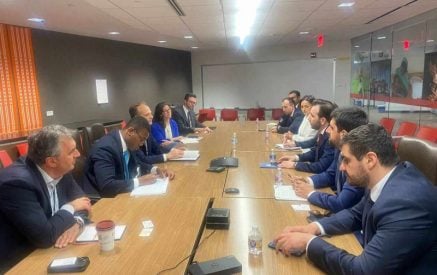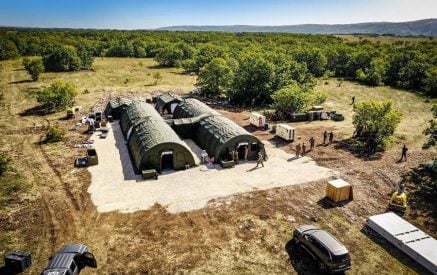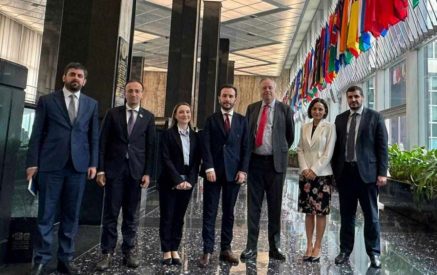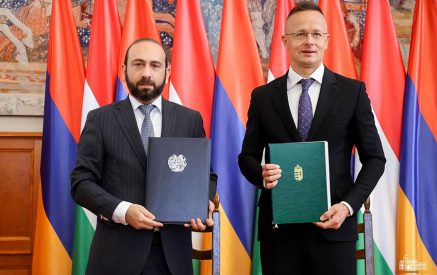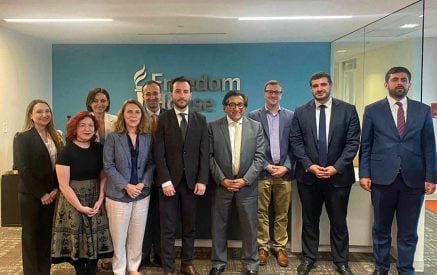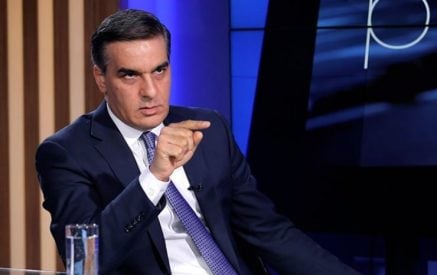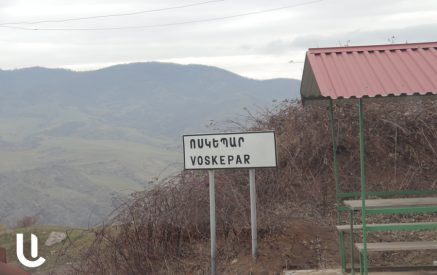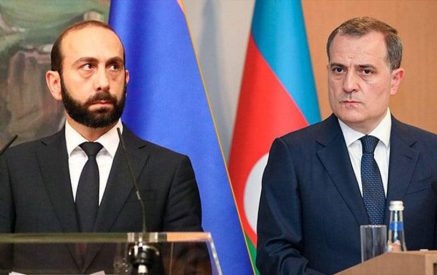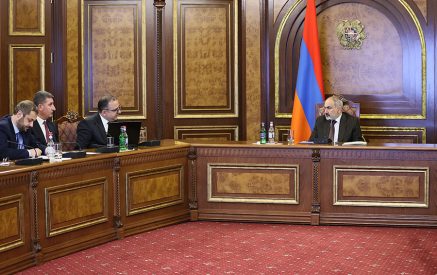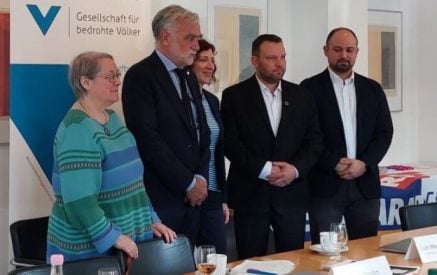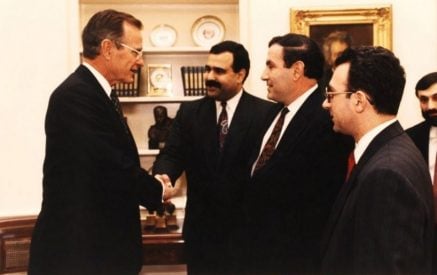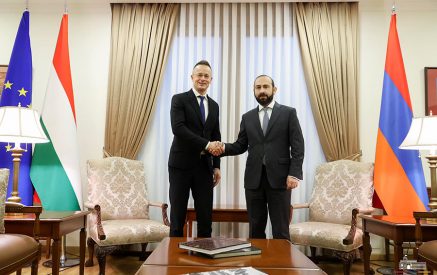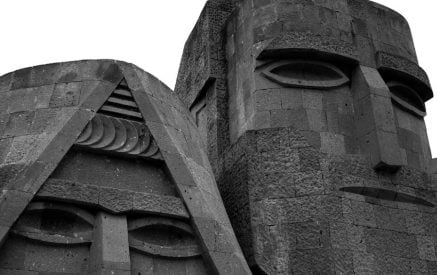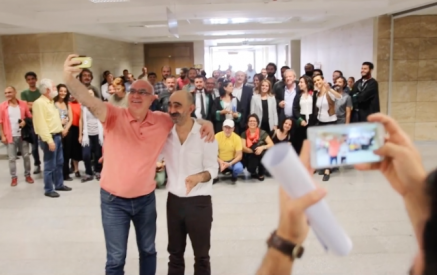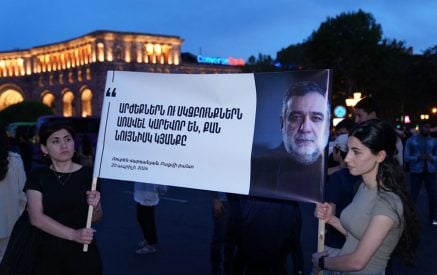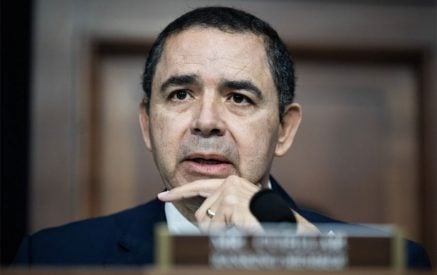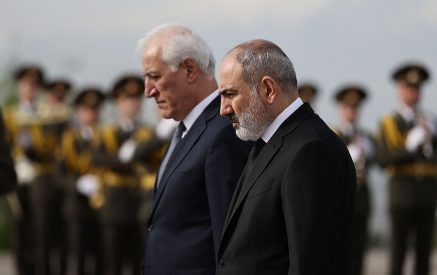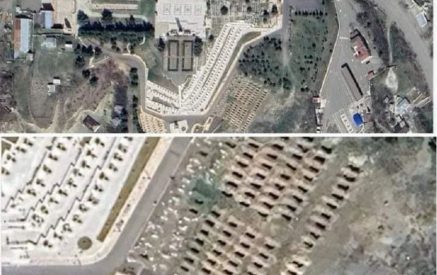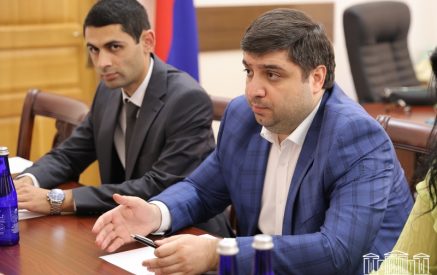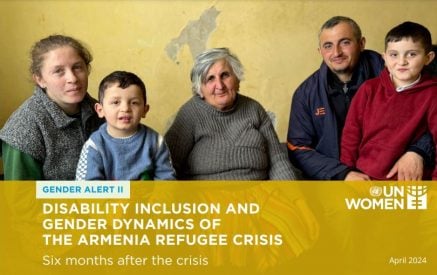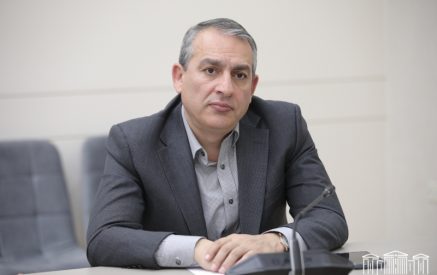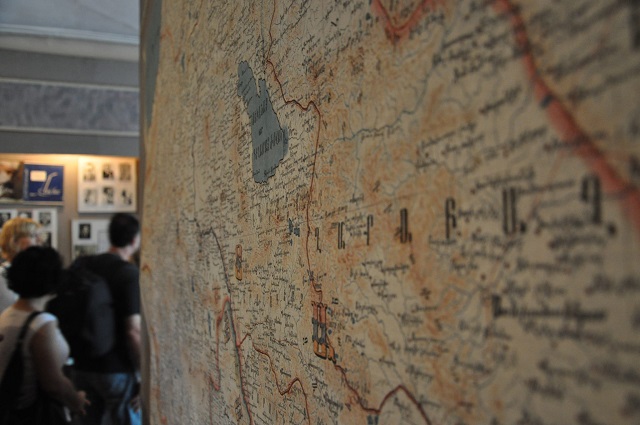The Armenian Weekly. The liberation of Artsakh in 1991 reversed a devastating trend of territorial losses for the Armenian nation. The Genocide had eliminated most of the Western Armenian population and resulted in the theft of the Armenian highlands, the home of Armenians for over 4,000 years. In 1918, thousands of Armenians were encouraged to return to Cilicia by the victorious French allies only to be betrayed by their sudden withdrawal which left the Armenian population vulnerable to further atrocities by Kemalist Turks in 1920-21. Stalin sacrificed the Armenians to pacify the Turks and Azeris by awarding Kars, Ardahan and Ararat to the Turks, Javakhk to his ethnic brothers in Georgia and heavily Armenian-populated Artsakh (Nagorno-Karabakh) and Nakhichevan to Azerbaijan. By 1923, with the hope of the Treaty of Sevres extinguished, Armenia had been reduced to a mere fraction of its historical definition.
In this context, the liberation of Artsakh is a miracle and an inspiring event. We are all deeply proud of Armenia’s non-violent move to independence in 1991. Artsakh’s liberation was a response to both its commitment to self-determination and preventing the continuation of genocide. The racist and murderous behavior of Azerbaijan was on full display in the years leading up the liberation movement. The Tartars and Azeris have a long history of hostile actions towards Armenians. Clearly the demographic manipulations of the major powers in the 18th and 19th century created a volatile environment, but coexistence has never been a part of the Azerbaijani agenda. By 1988, the Armenian population of Artsakh had been reduced by 20-percent and nearly to zero in Nakhichevan through intimidation, economic discrimination and government bias. In addition, the purging of over 350,000 Armenian citizens of Azerbaijan from 1990-91 was a clear reminder of their racist intentions. The heroic endeavor of Artsakh’s liberation has had a significant impact on the Armenian psyche and political self-esteem.
Historically, the Armenian Highlands have rarely been a peaceful neighborhood. Nearly every civilization in Western Asia has trampled over the homeland of the Armenians creating vassal states, suffocating independent kingdoms and forcing demographic changes. Still Armenians have outlived Romans, Byzantines, Medes, Sassanids, Seljuks and countless others who have passed through this homeland. Despite the advances of civilization, the area still has not enjoyed sustained stability. The Turks to the west are still genocidal deniers and the thieves of the western highlands. Azerbaijan has evolved into a shallow nation, misappropriating natural resources with racist and oppressive intent. Armenia’s closest supporter in the region, Iran to the south, is isolated from the west. The historical “big brother” relationship with Russia has proven to work as long as Armenia behaves in Russia’s interest. As the traditional east/west rivalries regenerate and democracy grows in Armenia, the relationship with Russia has become tactically strained. The freedom of the Armenian community in Georgia and regional geo-political relationships have created potential limitations to the north. Oppression builds a survival instinct. The truth is you never get used to oppression. You adapt, but you never accept it. Once you do, they stop writing your history. The names have changed, but the political and economic existence of Armenia remains complicated.
The Artsakh “settlement” has evolved into another proxy battle in this region. Unlike Syria or Iraq where foreign militaries were direct combatants, the last 26 years in Artsakh have been a parallel process of unrecognized nation-building and external interests at play. The main player, the OSCE Minsk Group, which includes the US, Russia and France, has a mediation mandate, but of course seeks a solution that serves their individual national interests. How do we define “national interests?” When they intersect, it results in an ally, but the duplicitous nature of geopolitics can continuously alter those dynamics. Russia has always viewed Armenia as part of THEIR family in THEIR neighborhood. From the Czarist Empire to the Soviet Union to the Russian Federation, maintaining influence is essential. Controlling the three nations in the southern Caucasus is critical.
Read also
On the other hand, if Russia is seeking influence you can count on the US and NATO as a counterpoint. Their respective work in the OSCE must be viewed in the context of global geopolitics. France is a bit of a wild card. They enjoy warm relations with Armenia but see themselves as representing European interests. With the significant European Union (EU) outreach into the region, interests become complicated. The lines are blurred. The intra-regional competition for the attention of the US and Europe is another important dynamic. Clearly Georgia has the most advanced relationship with NATO and the US. Armenia has made great strides in recent years in both domains, but the current dependency on Russia presents a limiting factor. High maintenance balance is the foreign policy of survival.
Existing in a volatile neighborhood requires displaying enough confidence that you are respected. Enemies can respect you. It is preferable to being ignored or irrelevant. Armenia has made its position clear with Azerbaijan and has defended that position with sacrifice and valor for 30 years. Azerbaijan teaches hatred of the Armenians, but they have some level of respect and perhaps fear of Armenia. Turkey, always the thorn in our side, works through their cousins to the East and must be watched carefully, especially with nefarious plans in Nakhichevan. Their flirtation with Russia is part of their historic strategy of playing east versus west. The most important area of opportunity is with the “proxy players,” essentially the three powers within the OSCE. With the exception of China, they represent the major forces in our world today: US, Europe and Russia.
Under Prime Minister Nikol Pashinyan, Armenia has expanded a policy of nurturing relationships with the US, NATO and the EU while maintaining the “strategic” partnership with Russia. This is a very challenging path, but maintaining a full dependence on Russia will reduce Armenia to a vassal state and isolation is not an option. As a result, Armenia embarks on a balanced approach. Armenia has the potential to be a stable conduit for all parties. Improbable? Not in a world where Turkey, a NATO ally, flirts with Russia and its S-400 missile defense system and where Turkey, a supposed US partner, openly works against US interests in Syria. In today’s world of political change, most nations are reluctant to alter the power mix with short term issues. Turkey has betrayed the US on several occasions, yet the heartbeat of the relationship continues. Status quo at least means your enemy has not gained ground. In that context, a stalemate in Artsakh serves others’ “national interests.”
The lesson for Armenia is that duplicitous tolerance works both ways. Armenia has more leverage than it has historically acknowledged. In Artsakh, there are many possible negative outcomes, but there is leverage with the presence of the Armenian population. Would the negotiators dare to depopulate areas that have been developed over the last 30 years? Doubtful.
That is a very bad optic for a mediation team. Despite the rhetoric of the Madrid Principles, many of the points are impractical to implement after nearly 30 years. Entire generations of those impacted have evolved into new lives. Returning to your father’s village in Artsakh to live with Armenians that you have tried to kill for 30 years does not sound like an attractive option for an Azerbaijani “refugee.” Besides, that argument will be quickly neutralized with the purging of 350,000 Armenians from their homes in Azerbaijan. Let’s not forget that Russia needs Armenia also. Their desire to not cede influence to the west in the South Caucasus is highly dependent on Armenia. Georgia was invaded by Russia and has evolved to the west. Azerbaijan by all accounts is unreliable and useful only for short term political moves. Squeezing Armenia on gas pricing or other economic levers is not going to improve Russia’s influence. The Russian influence will continue, but it will have to continue in a more “peer” relationship. As Armenia becomes more democratic and free market driven, the natural affinity towards the west is inevitable. This will require a Russian response.
Relative to Artsakh, Russia has pressured Armenia to support the placement of Russian ”peacekeepers.” The presence of Russian soldiers in Armenia (the Gyumri base) is a carryover from the post-Soviet CIS days. Artsakh is a somewhat clean slate. Obviously, the other OSCE players have no desire for Russian troops in Artsakh. The Armenians should continue leveraging this dynamic. Once foreign troops enter Artsakh, it will be difficult to reverse. While the presence of Russian troops on the western border of Armenia has served as a deterrent to any Turkish adventurism, it also is a reminder of limited sovereignty. The Azeri rhetoric on “territorial integrity” fits the narrative of the status quo. It attempts to keep the victim on the defensive. Rectifying a past injustice can create the one behavior everyone fears: instability.
Over the last 30 years, Armenia and Artsakh have created a new “status quo” that with each succeeding year becomes closer to an accepted reality. The borders of Artsakh may be debated still, but the idea of Artsakh under Azerbaijani control is gone. No one except the Armenians will say it, but they all know it, including the oppressor. Aliyev is looking for some of the “occupied territories” to save face. He has learned it is very difficult to retain what was never yours. In one of the toughest neighborhoods of the last two millennia, Armenia/Artsakh will endure. Armenia is gaining valuable experience in developing strategies designed to serve their interests and live beyond simply serving others. We can all help by contributing to the prosperity of Armenia and Artsakh.

